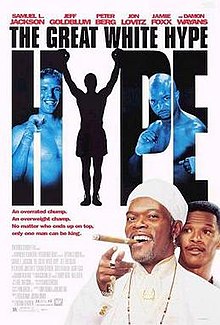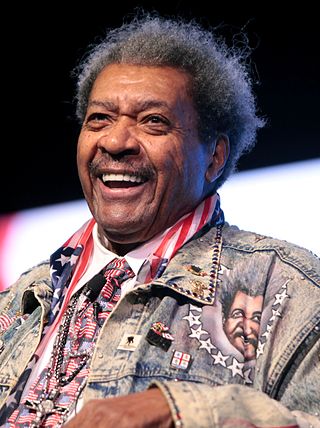
Donald King is an American boxing promoter, known for his involvement in several historic boxing matchups. He has been a controversial figure, partly due to a manslaughter conviction and civil cases against him, as well as allegations of dishonest business practices by numerous boxers.

Ali is a 2001 American biographical sports drama film co-written, produced and directed by Michael Mann. The film focuses on ten years in the life of the boxer Muhammad Ali, played by Will Smith, from 1964 to 1974, featuring his capture of the heavyweight title from Sonny Liston, his conversion to Islam, criticism of the Vietnam War, and banishment from boxing, his return to fight Joe Frazier in 1971, and, finally, his reclaiming the title from George Foreman in the Rumble in the Jungle fight of 1974. It also touches on the great social and political upheaval in the United States following the assassinations of Malcolm X and Martin Luther King Jr.
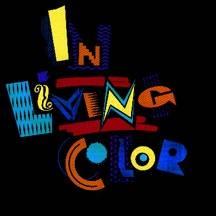
In Living Color is an American sketch comedy television series that originally ran on Fox from April 15, 1990, to May 19, 1994. Keenen Ivory Wayans created, wrote and starred in the program. The show was produced by Ivory Way Productions in association with 20th Television and was taped at stage 7 at the Fox Television Center on Sunset Boulevard in Hollywood, Los Angeles, California.
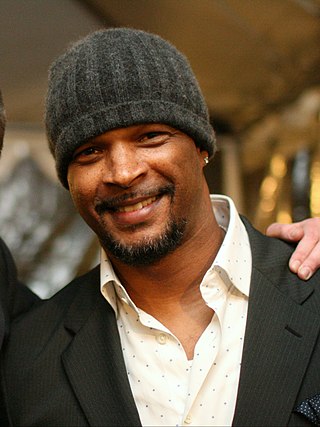
Damon Kyle Wayans Sr. is an American stand-up comedian, actor, producer, and writer. Wayans performed as a comedian and actor throughout the 1980s, including a year-long stint on the NBC sketch comedy series Saturday Night Live.
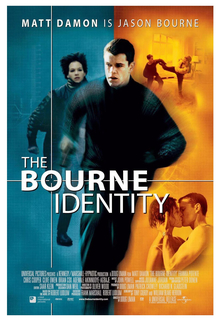
The Bourne Identity is a 2002 action-thriller film based on Robert Ludlum's 1980 novel. It was directed and co-produced by Doug Liman and written by Tony Gilroy and William Blake Herron. It stars Matt Damon as Jason Bourne, a man suffering from psychogenic amnesia attempting to discover his identity amidst a clandestine conspiracy within the CIA. It also features Franka Potente, Chris Cooper, Clive Owen, Brian Cox, Walton Goggins, and Adewale Akinnuoye-Agbaje. The first installment in the Bourne film series, it was followed by The Bourne Supremacy (2004), The Bourne Ultimatum (2007), The Bourne Legacy (2012), and Jason Bourne (2016).

Anthony Christopher Hendra was an English satirist and writer who worked mostly in the United States. He was probably best known for being the head writer and co-producer in 1984 of the first six shows of the long-running British satirical television series Spitting Image and for starring in the film This Is Spinal Tap as the band's manager Ian Faith.
Great White Hope may refer to:

The 2000 MTV Movie Awards were hosted by Sarah Jessica Parker. In conjunction with the success of Sex and the City, the awards show presented a parody of Sex and the City and The Matrix during the program's opening. It featured the SATC cast as they listened intently as Carrie Bradshaw describes getting caught in the Matrix, which is shown in flashbacks and in the narration style heard usually on the TV series. Laurence Fishburne appeared in the spoof in a creative superimposition from the film, as well as Vince Vaughn and Jimmy Fallon, who played Keanu Reeves's character, Neo, from the film. Also, it noted Parker's status as a fashion icon by appearing in no less than 15 different costumes during the duration of the awards ceremonies, even appearing in nothing but a bath towel.
Michael Andrew Jace is an American convicted murderer and former character actor, best known for his role as Los Angeles Police Officer Julien Lowe in the FX drama The Shield. He also played Andre Tibbs, an ex-convict mover accused of murder, in an episode of Cold Case.

Monte Barrett is an American former professional boxer who competed from 1996 to 2014. He challenged once for the WBA heavyweight title in 2006, and fought many top heavyweight champions and contenders during his career.

Alfred Rudolph Cole, best known as Al Cole, is an American former professional boxer. He won the IBF cruiserweight title and was a major force in the division until moving up to heavyweight, where he had less success. In 2001, Cole portrayed boxer Ernie Terrell in the film Ali.
Troy Amos-Ross is a Guyanese-Canadian boxer. As an amateur, he competed in the light heavyweight division at the 1996 Summer Olympics in Atlanta and 2000 Summer Olympics in Sydney, Australia.
Shinji Takehara is a Japanese former professional boxer who has competed from 1989 to 1996. He was the first Japanese boxer to capture a middleweight title having held the WBA title from 1995 to 1996.

Mike Tyson is an American former World Heavyweight boxing Champion. Tyson, ranked by ESPN as the No. 1 Most Outrageous Character in modern sports history has appeared in numerous popular media in either cameo appearances or as a subject of parody or satire.
The Wayans family is an American show-business family. Family members include Keenen Ivory Wayans, Shawn Wayans, Marlon Wayans, Damon Wayans Sr., Kim Wayans, Damon Wayans Jr., Damien Dante Wayans, and Chaunté Wayans. Works created by Wayans family members include the Scary Movie film series, The Wayans Bros., In Living Color, Don't Be a Menace to South Central While Drinking Your Juice in the Hood, White Chicks, My Wife and Kids, and Little Man.
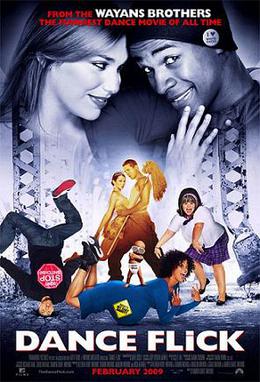
Dance Flick is a 2009 American musical comedy film directed by Damien Dante Wayans in his directorial debut and written by and starring many members of the Wayans family. The film was set for release in the United States on February 6, 2009, and changed to May 22, 2009.
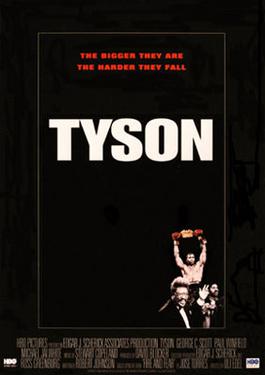
Tyson is a 1995 American television film based on the life of American heavyweight boxer Iron Mike Tyson. Directed by Uli Edel, it stars Michael Jai White as Tyson alongside George C. Scott as Cus D'Amato and Paul Winfield as Don King. The film is an adaptation of the 1989 book Fire and Fear: The Inside Story of Iron Mike Tyson by José Torres, a former boxer and former chairman of the New York State Athletic Commission, and depicts events from Tyson's troubled childhood in Brooklyn through his conviction in 1992 for the rape of beauty pageant contestant Desiree Washington.
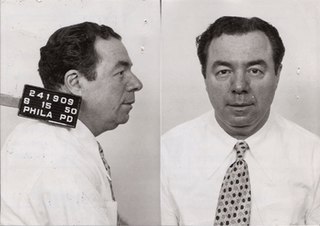
Frank "Blinky" Palermo was an American organized crime figure and boxing promoter who surreptitiously owned prize fighters and fixed fights; he was best known for fixing the Jake LaMotta–Billy Fox fight in 1947. An associate of the Philadelphia crime family, Palermo also ran Philadelphia's biggest numbers racket. Palermo's partner was Mafioso Frankie Carbo, a soldier in New York's Lucchese family who had been a gunman with Murder, Inc.
